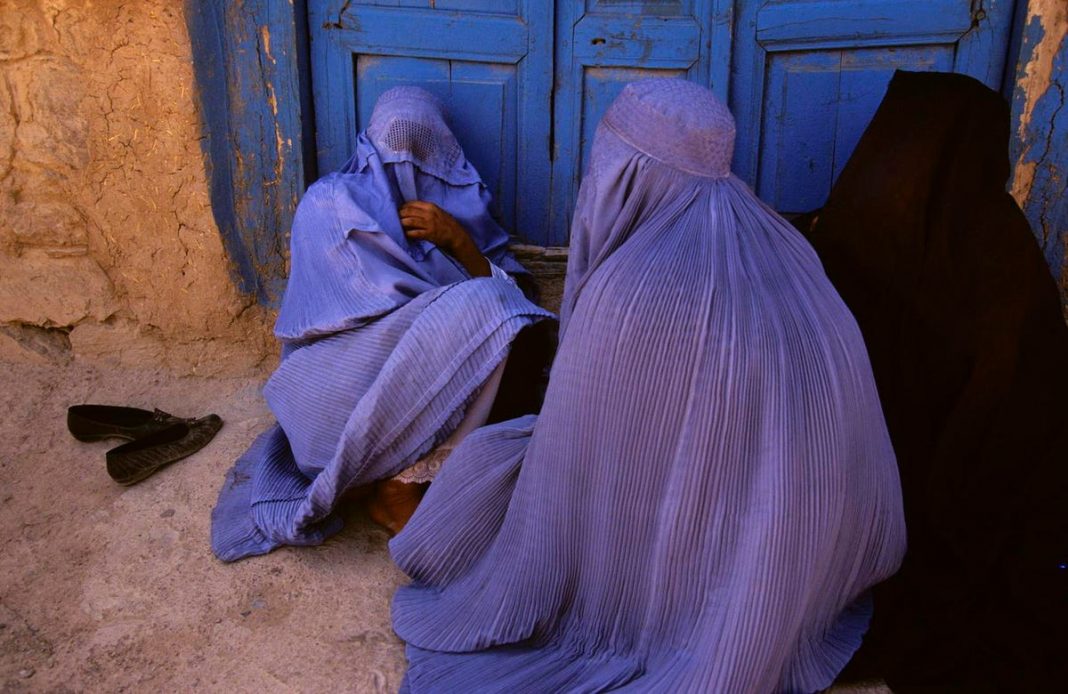Make no mistake. Women and girls, including women judges and lawyers, religious minorities, human rights defenders, journalists, translators, those who have worked with NATO or foreign governments are all at risk now that the Taliban has taken over in Afghanistan.
Women and girls
Shortly after taking Afghanistan’s capital city, Kabul, the Taliban announced that they would respect women’s rights. Such assurances have been met with skepticism. The Taliban does not have a good record of respecting the human right of anyone, let alone women and girls.
The assurance was also qualified. The Taliban will respect women’s rights but only within the framework of sharia law. This qualification complicates matters and casts further doubt that women’s rights will be respected. Sharia law is often incompatible with the recognized international standards of human rights. While there are many, often conflicting interpretations of Sharia, the Taliban, when in power between 1996 and 2001, enforced some of the most extreme of interpretations. This included barring women from education and work, from leaving the home without a male escort, and requiring them to be fully covered in public.
Women judges and lawyers have a lot at stake too, not only because of their powerful positions, but also because some of them have been involved in prosecuting the Taliban over the years.
Throwback to 90s Afghanistan, Here, unidentified women dressed in burqa sit outside a door on June … [+]
getty
Religious minorities
Religious minorities have been subjected to discrimination and persecution in Afghanistan from a variety of actors. According to the U.S. State Department Religious Freedom Report 2020, published in May 2021, religious minorities such as Sikhs, Hindus, Christians, and other non-Muslim minorities reported continued harassment in the country. “Baha’is and Christians lived in constant fear of exposure and were reluctant to reveal their religious identities to anyone.” The situation was even more concerning in the case of converts to Christianity or anyone studying Christianity, these communities have been receiving regular threats. Shia Muslims, and especially, the Hazara Shia, have been subject to violence by several actors, including Daesh-Khorasan. Daesh-Khorasan is a self-proclaimed branch of Daesh active in Afghanistan. In 2020, Daesh-Khorasan was responsible for, at least, 10 attacks against Shia Muslims, Sufi Muslims, and Sikhs resulting in 308 civilian casualties. The terror group was responsible, among others, for attacks “on March 6, [when] gunmen attacked a ceremony in Kabul attended primarily by Shia Hazara, killing 32 persons. (…) On October 24, [when] a suicide bomber staged an attack on an educational center in the same Shia Hazara-dominant neighborhood of Kabul, killing 24 persons and wounding 57. Most of the casualties were between the ages of 15 and 25.” Other attacks against this religious minority group included one on May 12, when “three unidentified gunmen stormed a maternity clinic in a predominantly Shia Hazara neighborhood of Kabul, killing 24 persons, including mothers, infants, and healthcare workers.” However, no group claimed responsibility for the attack. Furthermore, Amnesty International has reported on the Taliban attacking and torturing members of the Hazara community in July 2021.
The Taliban’s seizure of power in Afghanistan is yet another threat to religious minorities. Only a few months ago, Shia Hazara leaders expressed their concerns that: “a post-settlement Taliban would ‘turn back the clock’ to a time when human rights, including religious freedom, were not respected in Afghanistan. (…) if the Taliban established an Islamic emirate in the country, the Taliban would not accept Shia Islam as a formal religion and would ignore laws currently in place that protect Shia.” Already in the first week after the Taliban took control of Afghanistan, we witness as that this prophecy is materializing. Reports suggests that the Taliban took the Hazrat Ali mosque of Mazar I Sharif, a mosque especially venerated by Shia Hazaras of Afghanistan. Members of the community have been calling for help as they do not feel safe in the country.
Human rights defenders
As the Taliban was taking control, several U.N. mandate holders raised the urgent need to protect human rights defenders. They warned: “Governments which think that they can live with ‘Pax Taliban’ will find that this is grave error that destroys Afghan lives, rights and cultures, and eviscerates important advances that had been made in culture and education in the last two decades with international support and through tireless local efforts.”
Others at risk
A few days after the take over, the RHIPTO Norwegian Center for Global Analyses reported that the Taliban have been rounding up people they believe have worked in with the previous Afghan administration, NATO, foreign governments and others. They all are at risk of severe punishment at the hands of the Taliban.
Make no mistake. As the Taliban takes over, our focus should be on assisting all those at high risk to their lives and safety. The international community must step up its efforts to help as the situation in Afghanistan deteriorates. We cannot accept the empty promises that human rights will be respected. The Taliban has zero credibility on the issue.




